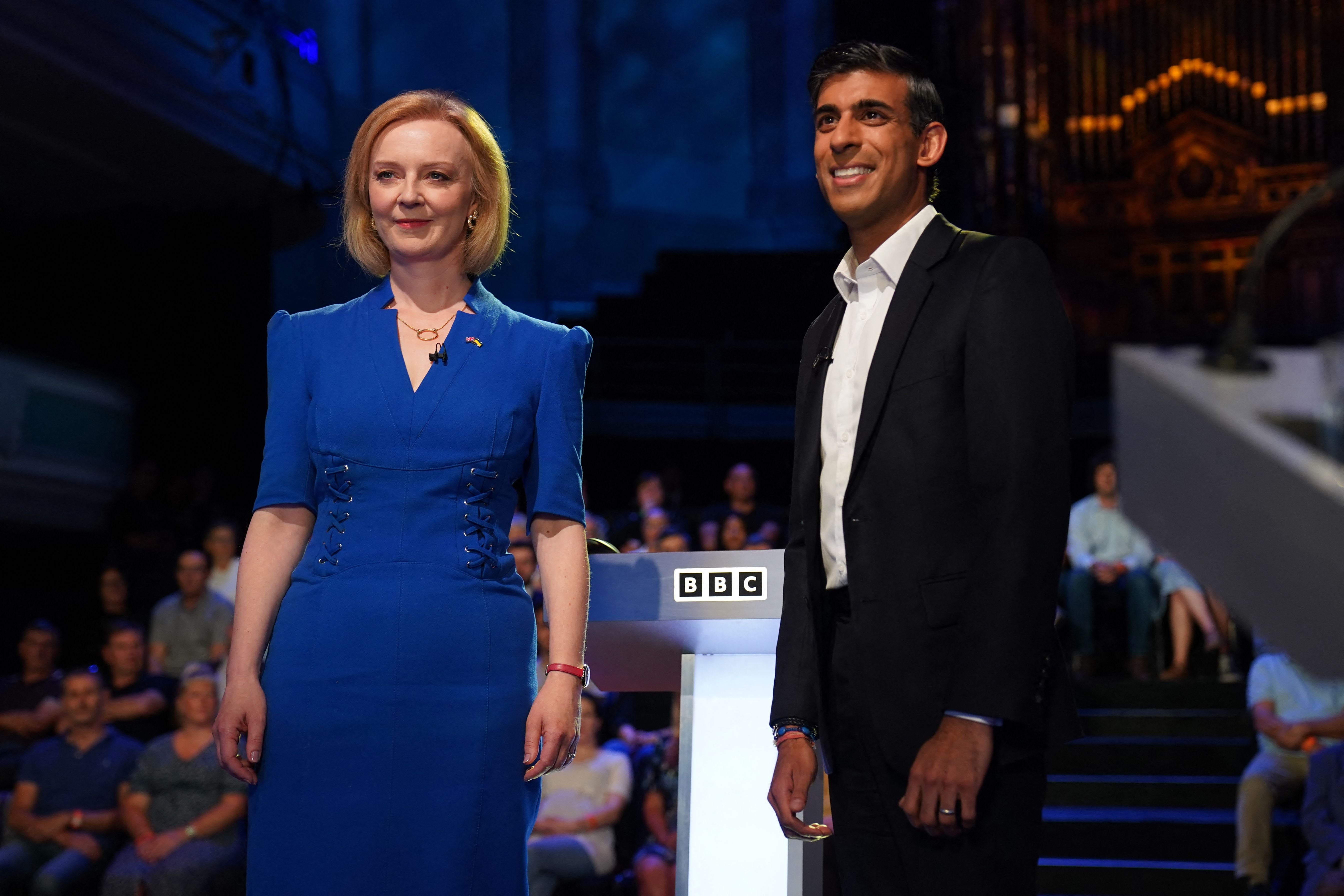Liz Truss is becoming the ‘continuity chaos’ as well as ‘continuity Boris’ candidate
In winning the Tory leadership election, the new PM is in danger of losing the next general election


How did Liz Truss make such a catastrophic mistake on regional pay? Her declaration of “war on waste” in Whitehall played well in Conservative-supporting newspapers, though The Independent rightly pointed out that taking account of the regional cost of living would mean a pay cut for nurses, teachers and police officers outside London and the South East.
Her Exocet missile, targeted at the red wall in the north and Midlands, was disarmed by Truss within 12 hours. But it is worrying that the policy was launched without being checked and double-checked.
Her unforced error has undermined Truss’ unstated pitch: reviving Boris Johnson’s 2019 appeal to voters, especially conservative across the red wall in the north and Midlands, without the cock-ups and lies. One amazed Tory MP told me Truss’s move showed she is “the continuity chaos candidate as well as continuity Boris”.
Team Truss points out she U-turned quickly, in contrast to Johnson’s painful retreats after ministers and backbenchers had defended the indefensible in the media. But the country is crying out for grip and competence, not another “wonky shopping trolley” as Dominic Cummings called his former boss.
The more fundamental reason behind it was the growing pressure on Truss to explain how she would fund her bonanza of tax cuts – costed at £50bn by Team Sunak. Her ill-fated proposal could have apparently saved £8.8bn.
The nerves of Truss supporters have been steadied by today’s YouGov poll showing her with a huge 34-point lead over Rishi Sunak, although she knows the gap would close if she were to repeat this howler.
I suspect a big factor in Truss’ huge lead is reflected in YouGov’s finding that 51 per cent of Tory members think Sunak was wrong to resign as chancellor. Johnson’s “betrayal” narrative has been bought by the party’s grassroots.
As one red wall MP told me: “It’s a simple judgement for many of my local members: Rishi betrayed Boris. That’s all they need to know when deciding how to vote.” Perhaps Sunak literally couldn’t win from the start. Even trying to match Truss on tax cuts won’t work.
Both candidates are playing fantasy politics. Although Sunak argues his tax cuts will not be “unfunded” like his opponent’s, they still rest on our old friend: higher growth. That is precisely the funny money the Tories used to accuse Labour of relying on to fund its spending plans. I can’t imagine Sunak’s proposed 16p basic rate of income tax ever coming to pass, unless he pushes up “stealth taxes” like tax thresholds or national insurance contributions – but he has already done both.
Although the two candidates are telling Tory members what they want to hear, it is not what the wider public wants. One poll found that only 10 per cent of 2019 Tory voters think tax cuts should be a priority for the new PM, while just 21 per cent of Tory party members do. Tory voters are also twice as likely as party members to say the incoming PM should prioritise the NHS.
This highlights the largely missing piece of the leadership election: the funding of public services. The candidates are showing us only one side of the ledger. There’s vague talk of reform but precious little detail. Indeed, when Truss tried to provide some, she stumbled.
The party is in danger of forgetting that Johnson’s popularity in the red wall was based on more than “getting Brexit done”; it was also about seeing off Jeremy Corbyn and, crucially, investing in public services.
Yet even before the tax cuts auction now before us, a black hole loomed in the public finances. The Office for Budget Responsibility has warned that the share of the population aged 65 and over will rise from 19 to 29 per cent over the next 50 years, pushing up spending on health by 7 per cent of GDP, adult social care by 1 per cent and pensions by 3 per cent.
The problems already facing the NHS are well documented. A funding crisis in schools is also imminent. Truss wants to boost defence spending by about £24bn. Social care has not been “fixed”, as Johnson claims; most of the money earmarked for it has been switched to tackling the 6.6 million-long NHS waiting list. And the safest bet in politics is that the new PM will be forced to find billions to help people with their energy bills this winter; the latest estimate puts them at £3,729 a year by next April.
As PM, Truss or Sunak might try to lurch from the right to the centre. But they will not want to break their rash promises on tax cuts, and it is hard to see how public services will avoid being stretched to breaking point if they keep them. Perhaps they would try to put off the evil day on austerity until after the general election. But voters are not stupid; they would surely know what was coming.
In winning the Tory leadership election, the new PM is in danger of losing the next general election.

Join our commenting forum
Join thought-provoking conversations, follow other Independent readers and see their replies
Comments